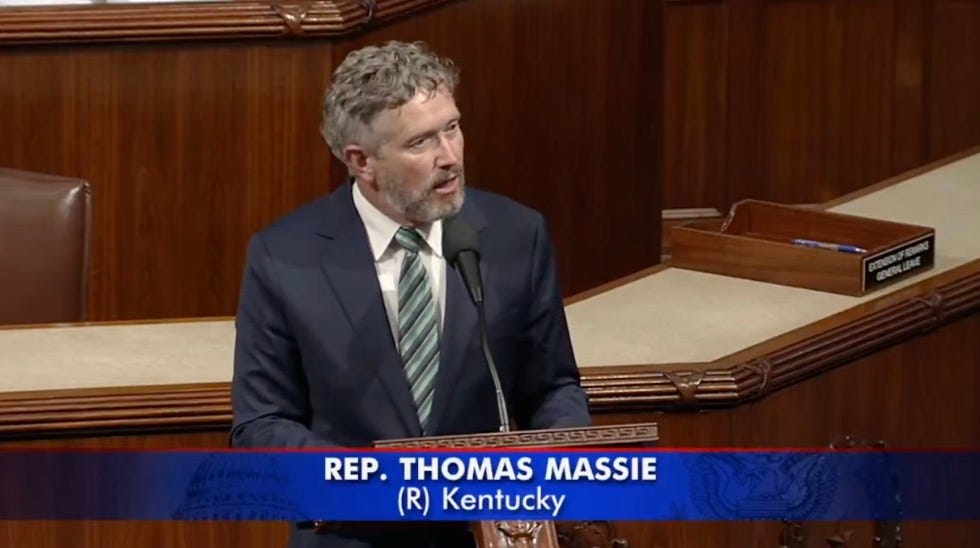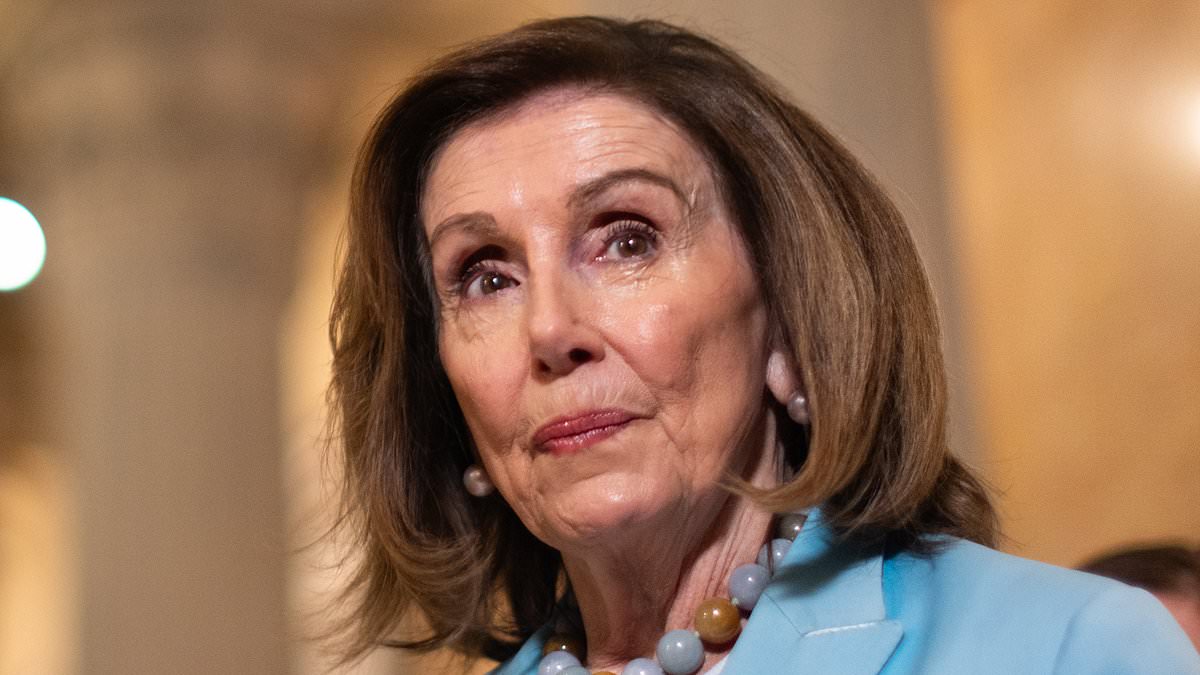How DOGE Has Impacted the Class of 2025
Jonah Zuehls is exactly the kind of young person the United States government should be looking to put on its payroll — smart, ambitious, and inclined toward public service. And up until recently, that’s exactly where he always thought he was going to land. Last summer, when the 21-year-old health science and molecular biology student at the University of Wisconsin-Green Bay met virology researchers who had worked on a Covid vaccine, he was so inspired by how their work had helped humankind, he decided he wanted to follow in their footsteps. Over the winter break, Zuehls began lining up full-time contract opportunities at government-run labs in Maryland and Montana as an applicant to a prestigious National Institutes of Health postbaccalaureate program. He was excited to spend the next year or two serving the public. But not long after Jan. 20, when the Biden administration gave way to the Trump administration, recruitment for those positions was abruptly put on pause.
Zuehls initially regretted not having listened to the four professors who had advised him to simply apply straight to graduate school and pursue a Ph.D. But then he heard other students across the U.S. who’d been accepted into those grad programs were suddenly having their offers rescinded too, after federal funding to their colleges was pulled. He reached out to two biotech companies to see if they had any open roles, only to learn they had either paused or delayed any hiring as they waited to learn the fate of their NIH grants. Suddenly, everywhere he looked, doors were slamming shut. “I can’t enter the private sector. I can’t go to university. I can’t do the postbac. What do I do?” Zuehls says. “Do you just go work at McDonald’s?”
Almost four months after Zuehls’ first offer was rescinded, he was able to accept an offer to work on HIV research at an NIH lab in Maryland, when recruitment for some of these programs partially resumed. But he remains shaken by the experience. More than anything, he’s been trying to understand why the country so many young people want to serve no longer seems to place as much worth on that service. “You go to school for a career where you’re supposed to be helping people and then find it’s not valued,” he says. “Nothing about it makes sense.”
Interviews with 10 students and new graduates across the U.S. offer a glimpse of how they’ve been grappling with the fallout from the Trump administration’s unprecedented slashing of the federal government. Spearheaded by Elon Musk’s so-called Department of Government Efficiency, or DOGE, the haphazard cuts to public agencies have resulted in more than 280,000 federal workers and contractors being laid off from 27 agencies, according to a tracking report by one outplacement firm. But the axe has also fallen on aspiring attorneys, scientists, data managers, and others who had federal internships canceled or offers of employment rescinded amid hiring freezes, leaving them stung and confused. As they’ve scrambled to plot their next steps, many of these students have not only lost postgraduate opportunities, but their very faith in the public service as a viable career path.
Kristin Comrie, a 35-year-old completing her master of science degree in healthcare informatics at the University of Central Florida, says work in the public sector is “obviously a lot less secure.” Comrie was deeply frustrated when even her unpaid internship at the Department of Veterans Affairs was scrapped as of Jan. 21, just weeks before she was set to start. “In a way, it was a valuable experience — but not in a positive way, because now I would think twice about joining the public sector,” Comrie says. “It just didn’t even occur to me that something so sweeping like that could impact even an internship.”
Prior to the DOGE cuts, it seemed more students were feeling drawn to government work. A report from May 2024 by Handshake, a recruiting platform for college students, found almost 7.5 percent of applications submitted by graduates through the platform were for government jobs, up two percent from the previous year. (In November 2024, 1.87 percent of the entire U.S. civilian workforce were federal government employees, per the Pew Research Center.) For three-quarters of all those surveyed, their main career concern was job security, a benefit often associated with government work. “I’m extremely thankful to be in a secure position where I don’t have to worry about being laid off,” one student who had landed an offer to work for a federal agency told the surveyors.
For Andrew Nettels, 25, a third-year law student at George Washington University, this promise of stability was a major reason he was eager to begin a Department of Justice role he’d secured as part of the highly competitive Attorney General’s Honors Program — a job offer that was subsequently revoked when the program was canceled as part of the hiring freeze. “I wasn’t applying to a job, per se. I was applying for a vocation,” Nettles says. “I had the long-term in mind.”
The government is also desperately in need of younger workers like Nettels given that a significant portion of its employees is nearing retirement age. A January report from the Pew Research Center found that more than 28 percent of federal workers were over 55, compared to 23.6 percent of the overall workforce. Fewer than nine percent were under 30, compared with 22.7 percent of all workers. “The government has a gray-hair problem,” says Zachary McDaniel, a 30-year-old completing a masters in taxation law at the University of California, Irvine, who was due to begin a salaried graduate position he’d secured at the Internal Revenue Service before it was abruptly canceled. “You want the next generation of really, really smart, motivated people to be in there. You want to have the best and brightest. I think it truly is the government’s loss that they’ve essentially terminated an entire class.”
The Biden administration had been taking steps to remedy the age demographics. In January 2023, the U.S. Office of Personnel Management (OPM) released guidance on growing the number of early-career programs in the federal government, with agencies instructed to increase their numbers of interns, fellows, apprentices, and early-career hires. The administration had wanted to hire at least 35,000 interns alone in 2023, and job postings on Handshake from federal employers subsequently jumped 22 percent from the previous year. OPM director Kiran Ahuja had said the recruiting efforts would allow federal agencies to “boost their talent pipelines and better serve the American people,” in part by better reflecting the age diversity of the country. (The comments by Ahuja, who subsequently announced she was stepping down from her role in May due to what an agency spokesperson said were health and family reasons, have since been scrubbed from the internet.)
Now, though, many federal agencies have disappeared from recruiting events on college campuses, according to Shawn VanDerziel, the executive director of the National Association of Colleges and Employers, which represents 17,000 members who work in career services on campuses or who recruit new graduates. These career-guidance professionals are now advising students who might be thinking about federal work to wait until the government is more stable. Currently, its reputation as an employer is just not what it used to be, and it may not recover for some time to come, according to VanDerziel. “The federal government will really need to be rethinking recruitment strategies whenever it is ready to bring in new recruits because of the impressions that this is leaving in the eyes of new graduates,” he says. “They are really going to need to plan carefully if they are going to appeal to Generation Z.”
The perception that government work is generally more stable than the private sector was not the only material benefit attracting aspiring federal workers. The competitiveness of many graduate program roles and internships in the federal government meant they naturally bestowed a certain degree of prestige on young workers, opening doors that might eventually lead them to higher-paying roles in the private sector. Many interviewed by Rolling Stone said they also expected to develop significantly more experience in public service by virtue of being handed more to do than they would be in a corporate job. “When you go into Big Law, you’re not really given a lot of responsibility, and I’m someone that does enjoy being given responsibility and starting to work right away,” says Malen Nousari, a 29-year-old University of Miami law student set to graduate in May. “So I knew that working at the IRS, not only would I feel good about the work I’m doing, but I also would get the experience that I’m looking for.”
The daughter of immigrants from Argentina, Nousari had welcomed the opportunity to give back to the country that had taken her family in. “I was ecstatic. I mean, I cried,” she says of learning in August that she’d been accepted into a role as an attorney with the IRS in Fort Lauderdale. “Well, I cried on both sides — when I got it and when I lost it.”
Many of the students who spoke with Rolling Stone had similarly personal stories about why they wanted to enter the public sector. Neil Mahto, a 20-year-old sophomore at Johns Hopkins University in Baltimore, viewed the three-month paid internship he’d secured at an NIH lab to research Alzheimer’s disease as a chance to combat the brain-related disorders that had affected his mother and grandmother. Angela Silva, a 34-year-old who graduated in December from the University of Florida’s law school, came to appreciate the need for compassionate public servants during the lengthy period it took for her immigrant husband to win permanent residency. Another law student at the University of Oregon, who asked to remain anonymous so as not to jeopardize other government opportunities, was devastated when a paid internship offer from the Environmental Protection Agency’s Office of Civil Rights was rescinded before the job began. She’d wanted to become an attorney since seeing the 2019 movie Dark Waters, which told the story of how a chemical manufacturer had dumped waste that contaminated communities in West Virginia. “I felt like this was a long dream of mine,” she says.
For Daniel Pintard, a biology and computer science student at Marymount University in Virginia, the opportunity to return this summer to a paid internship he completed last year at the National Library of Medicine was meant to be a homecoming of sorts. The 22-year-old couldn’t recall another time he’d found something so intellectually stimulating and rewarding — even comforting. “It was really surprising to me that a government agency could feel like a place where there’s a really strong sense of community and belonging — that you feel like you’re kind of in the right place,” Pintard said. “To be a part of something that’s bigger than you and that is very fundamentally important to the field that you really care about is one of the most satisfying feelings.”
After finally learning their fates, though, Pintard and others who spoke with Rolling Stone said they’d felt a mix of feelings from disappointment to devastation, frustration to anxiety. More than anything was a sense of confusion about why the government would abandon so much talent. “I’ve talked about it with other law students, and everyone’s just in disbelief. They keep saying the same thing: It doesn’t make sense,” says Nousari, who adds that she needed time to grieve for her lost role. “Anyone in these [graduate] programs is very qualified, at the top of the class, and is choosing to work. You’d think you’d want more of those people in government. I think jaded is the sense I’ve had talking to friends.”
On a practical level, the cancellations and rescissions have affected students in different ways. Some had structured their course schedules in their final semesters under the assumption that their job search was over. (“Being thrown back into the job search, it’s been quite difficult to balance that,” says Nettels, the George Washington University student.) Others had already graduated — like Silva in Florida, who was studying for the bar exam when she learned her role at the IRS was gone — meaning they no longer had access to their school’s recruiting resources. “It was like a double blow,” Silva says. “I lost my dream job, and now I’m on my own trying to find new employment.”
The news was particularly painful for Silva because she’d turned down another position to accept the government role. “I thought the IRS was more permanent, that it’s a safer position,” Silva said. “Joke was on me.” (Silva ultimately was able to return to the position she had turned down at the University of Florida’s Low Income Taxpayer Clinic.)
To try to find their way out of the mess, students have been frantically applying for other opportunities and reaching out to their college and professional networks. Many have shared candid posts on LinkedIn, some of which went viral and gave rise to potential leads. Nettels created a group chat for more than 100 other law students who’d lost roles at the DOJ where they could share tips and strategize. He, like others, was also supported by trade groups, college career advisors, companies, and law firms that rallied to assist the affected students and steer them into new roles. Many of those who spoke with Rolling Stone had successfully found new opportunities, but some were still looking. Zuehls, the young scientist in Wisconsin, says he’s been considering leaving the U.S. altogether to pursue a Ph.D. in Canada or Europe — somewhere he can feel more confident that the government wouldn’t suddenly pull funding based on a whim or grievance.
All this instability has also shaken the confidence of graduates who have recently begun their hard-won government roles, only to find themselves now eyeing the exits. One 32-year-old attorney at the IRS Office of Chief Counsel, who asked to remain anonymous to discuss a job she only began at the end of last year, described how she had gladly signed a contract that pledged her to three years of work with the agency, because she’d fully expected to work there for twice as long. But confronted with cuts spearheaded by Musk, who has demonized workers like her, she’s now considering accepting a package being offered as part of a second round of buyouts — a development she calls “heartbreaking.” She explains, “Not to be dramatic, but I like this job and I don’t want to quit. But things don’t seem to be getting any better; in fact, they seem to be getting a lot worse.”
“I’m really struggling to find the word, because ‘unprecedented’ just doesn’t feel right,” she adds when asked what the last few months have been like. “It feels disorienting, unsettling, destabilizing, and just shocking. I feel frozen, and I think that’s the point. …It’s hard to get your bearings.”
While none of the students who spoke with Rolling Stone said they had voted for Trump, they described conversations with friends and loved ones who had done so and who were shocked to hear how they had been affected. Mahto, the Johns Hopkins student, says some of his roommates had voted for Trump and were now regretting their choice, while Pintard, the Marymount student, says a friend who had opted not to vote has since apologized for how his apathy led to Pintard’s predicament. Zuehls says he’s depressed that some in his extended family who support Trump can’t seem to see how the president’s actions had so profoundly hurt him.
What each student has been left with is a clear and direct understanding of just how much a person’s fate can be affected by a single election. “When you vote, you don’t really understand how much of your life is impacted by politics,” says the unnamed Oregon law student. “We don’t understand that everything that we have around us is politics.”
McDaniel, the UC Irvine student, in particular, has a very strong sense of the road not taken. He and his girlfriend had already traveled to Salt Lake City to inspect potential apartments in anticipation of the IRS position he’d expected to start there in June. He was looking forward to being closer to family and ski resorts. Instead, he’s off to start a role he’s managed to find in the private sector in San Jose.
Still, as he read reports of senior IRS officials resigning in protest over a deal to share migrants’ data with federal immigration authorities, McDaniel couldn’t help thinking he had dodged a bullet. He’d always assumed that a public sector role wouldn’t require someone to compromise their values in a way one might have to in private industry, but that no longer seemed true. He had wanted to serve the public, not a president, but an election had changed everything. “It’s a Sliding Doors moment for the U.S.,” he says. “Who knows what would have been different?”










